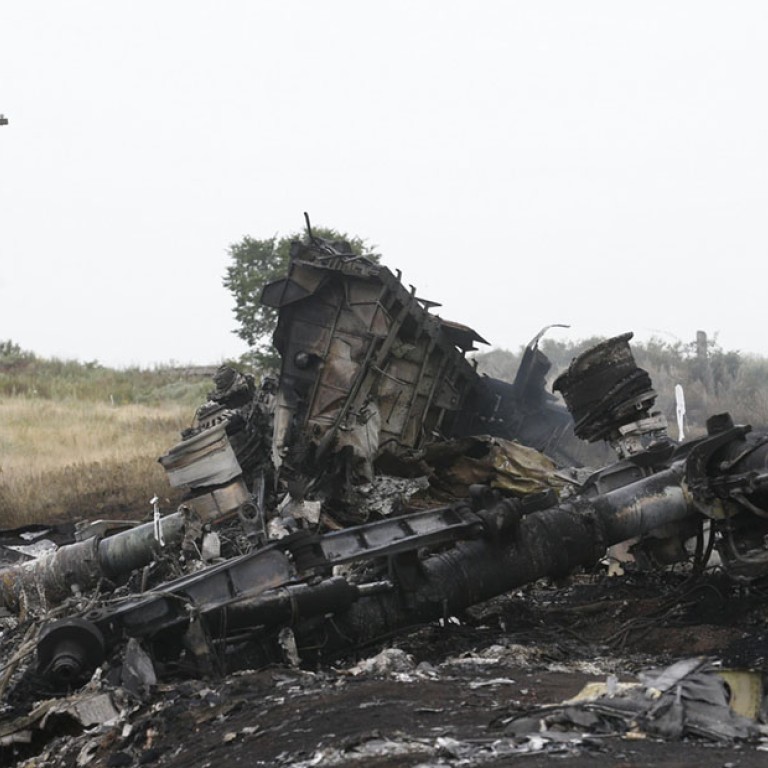
War zone manoeuvres
Airlines across the world are examining their rules, and the risks, of flights over conflict areas
The ill-fated journey of Malaysia Airlines flight MH17 across Ukraine is likely to result in a review of rules for jets flying over war zones, aviation insiders say.
Before the downing of the civilian aircraft on Thursday, thousands of jets had flown over eastern Ukraine without trouble. Yet two Ukrainian planes were shot down in the region just last week.
Chris Yates, a British aviation, security and counter-terrorism expert, said the International Civil Aviation Organisation would have to seriously consider whether flying over war zones was worth the risk.
"The [organisation], in concert with the other aviation authorities, will have to look with some degree of carefulness as to whether aircraft should be allowed to fly over war and conflict zones," Yates said.
Nearly 300 passengers and crew members, mostly from the Netherlands, died in the mid-air disaster on Thursday.
Malaysia Airlines insists it had relied heavily on guidance from international aviation authorities rather than using its own judgment in deciding the plane's flight plan.
Pilots and airlines decide which countries over which to fly their aircraft, but ultimate control lay with the airline, explained Chris Beebe, general secretary of the Hong Kong Aircrew Officers' Association.
The veteran pilot of 33 years said he expected the disaster to result in a "refocusing" on issues such as flying over conflict zones in "a greater effort to protect commercial airliners".
"When a flight is dispatched, a captain and his crew will take into account the route of the flight and they will usually be briefed on potential conflicts along the way," Beebe said.
Before pilots depart, routes are plotted out to steer clear of potential conflict zones and pilots can make adjustments to the routes if they feel they might be put in an "unsafe situation", he added.
But Peter Lok Kung-nam, former head of the Civil Aviation Department, said airlines were unlikely to avoid an area if no warning was issued against it. "Such routes are usually considered safe, but it is normal practice for areas with military drills or wars to be ... designated as no-fly zones," he said.
The Civil Aviation Department said no Hong Kong-bound or originating flights planned to fly over Ukrainian territory.
Critics have rounded on the beleaguered Malaysia Airlines for flying over an active conflict zone.
The state-owned airline is suffering its second major plane crisis in four months. Flight MH370 disappeared in March while en route from Kuala Lumpur to Beijing and remains missing despite large-scale searches.
Defending the airline's decision to fly over rebel-held territory in Ukraine, Mohshin Aziz, a Kuala Lumpur-based analyst at Maybank Investment Bank, said: "As long as the airspace is open, who are we [Malaysia] to contest what the Europeans say?"
But several major airlines diverted their planes from Ukraine several months ago, after clashes between Ukrainian and pro-Russian militiamen intensified.
In the wake of the MH17 disaster, airlines are now scrambling to divert their jets around central European airspace.
China's Civil Aviation Administration yesterday ordered all its aircraft flying over Ukraine to avoid the airspace over the area where the Malaysia Airlines plane crashed. Some 28 round-trip Chinese flights were affected, the regulator said.
National airline Air China said it had adjusted the route of its flights between Beijing and Rome to bypass the Ukrainian airspace. China Eastern Airlines has also rerouted its flights between Shanghai and Rome.
Asiana Airlines, Korean Air and Qantas Airways all amended their flight routes over the area in March. The airlines took extra security precautions despite no official ban from regulators on flying through the area.
"Although the detour adds to flight time and cost, we have been making the detour for safety, and until the Ukrainian situation is over, we will continue to take the detour route for our cargo flight out of Brussels," an Asiana spokeswoman said.
The United States' Federal Aviation Administration has also issued an order prohibiting US aircraft from flying in the airspace over the Crimean region of Ukraine and nearby parts of the Black Sea and Sea of Azov.
Cathay Pacific said it had adjusted its routes some time ago.
"It's blatantly obvious they shouldn't have been anywhere near it," said Geoff Dell, an accident investigation and safety specialist at Central Queensland University in Australia.
Additional reporting by Adrian Wan in Beijing and Reuters


